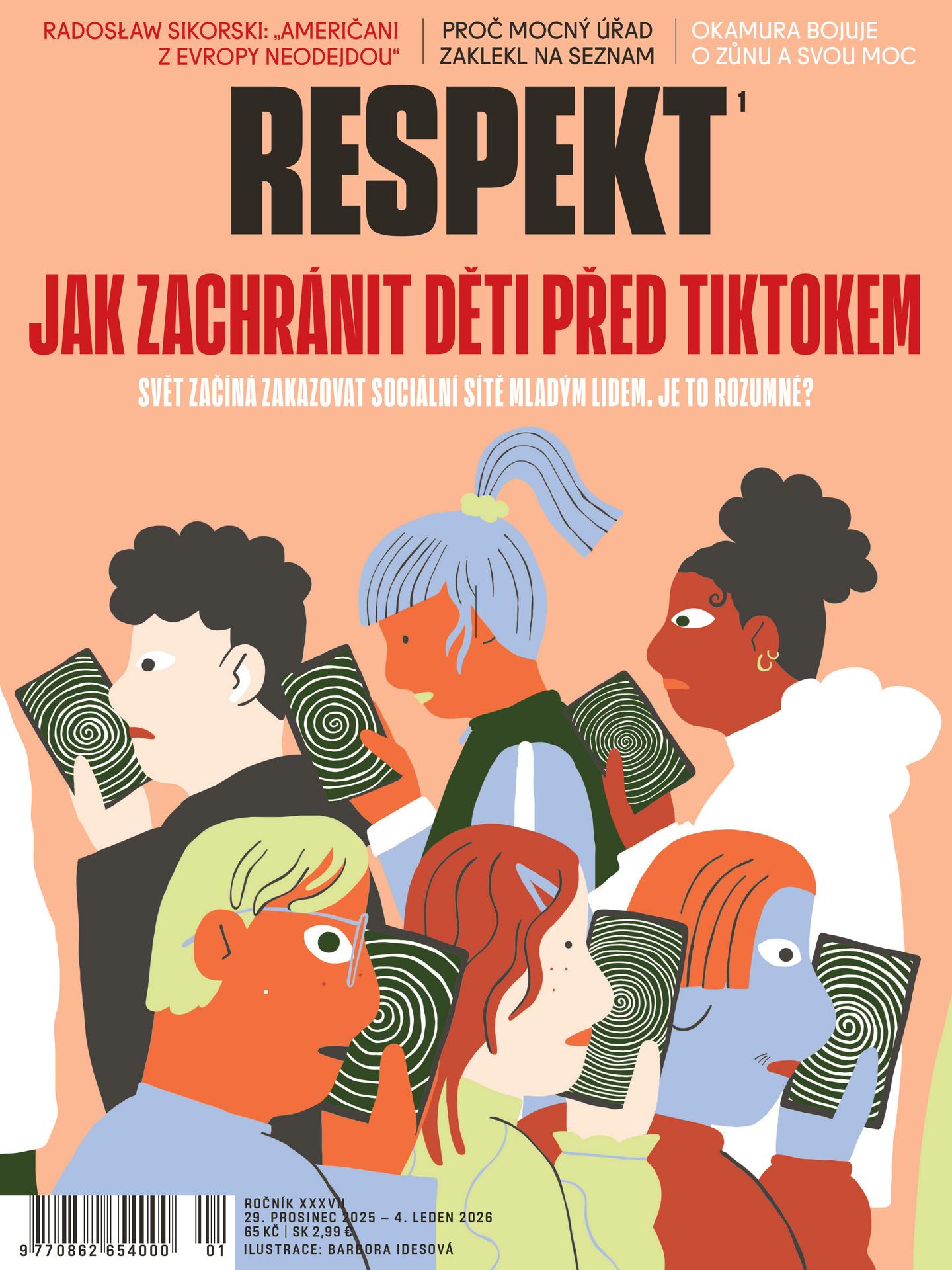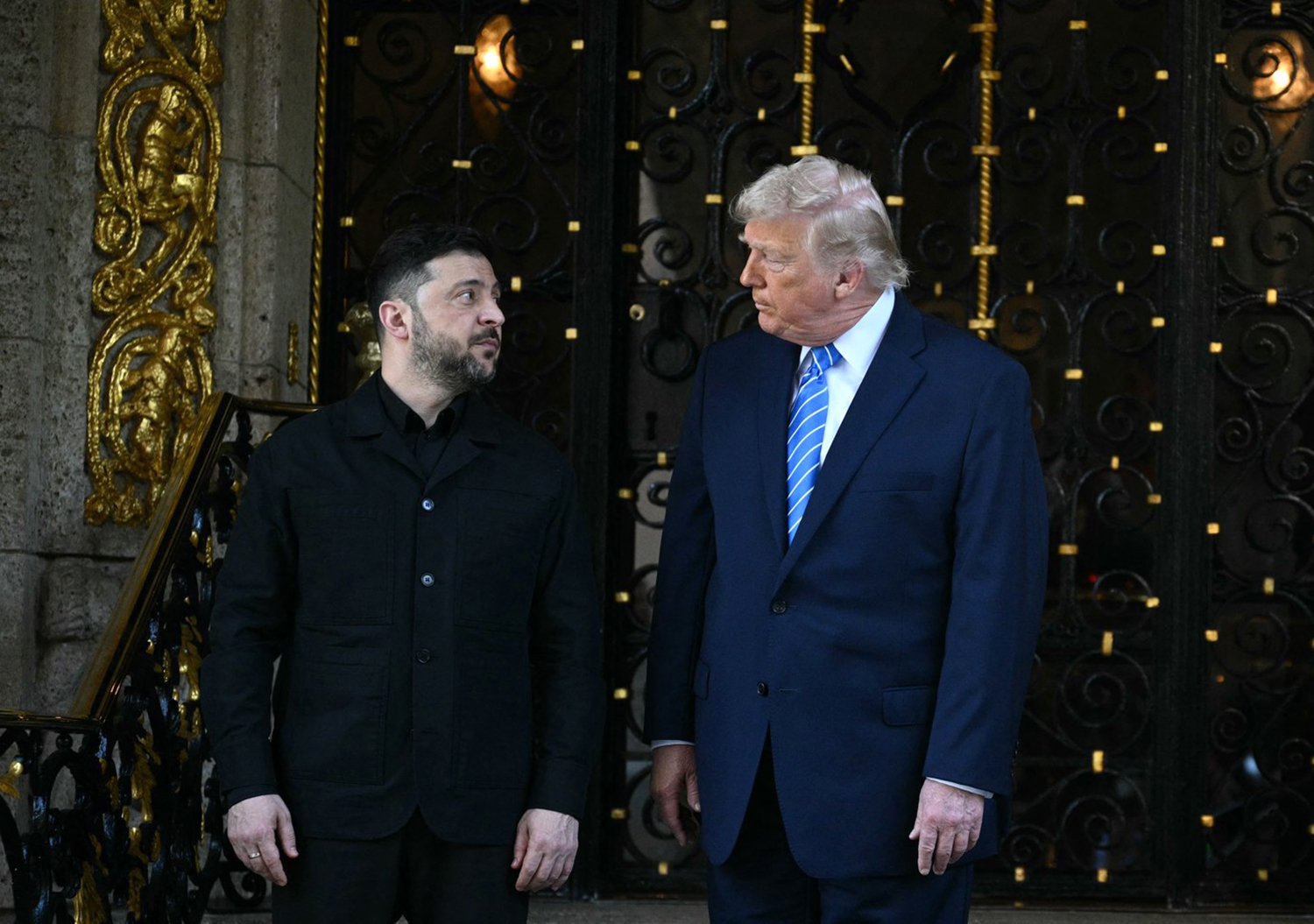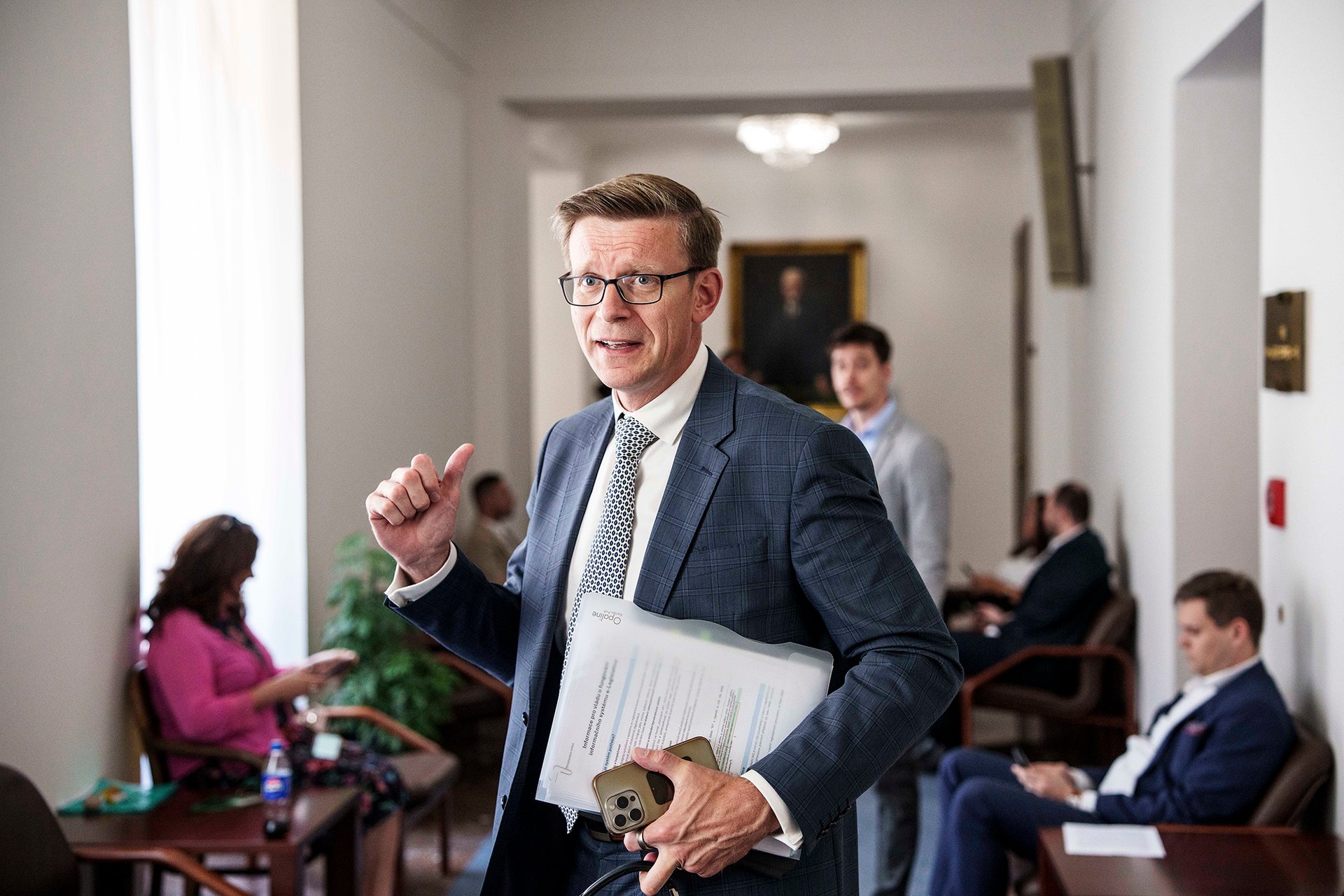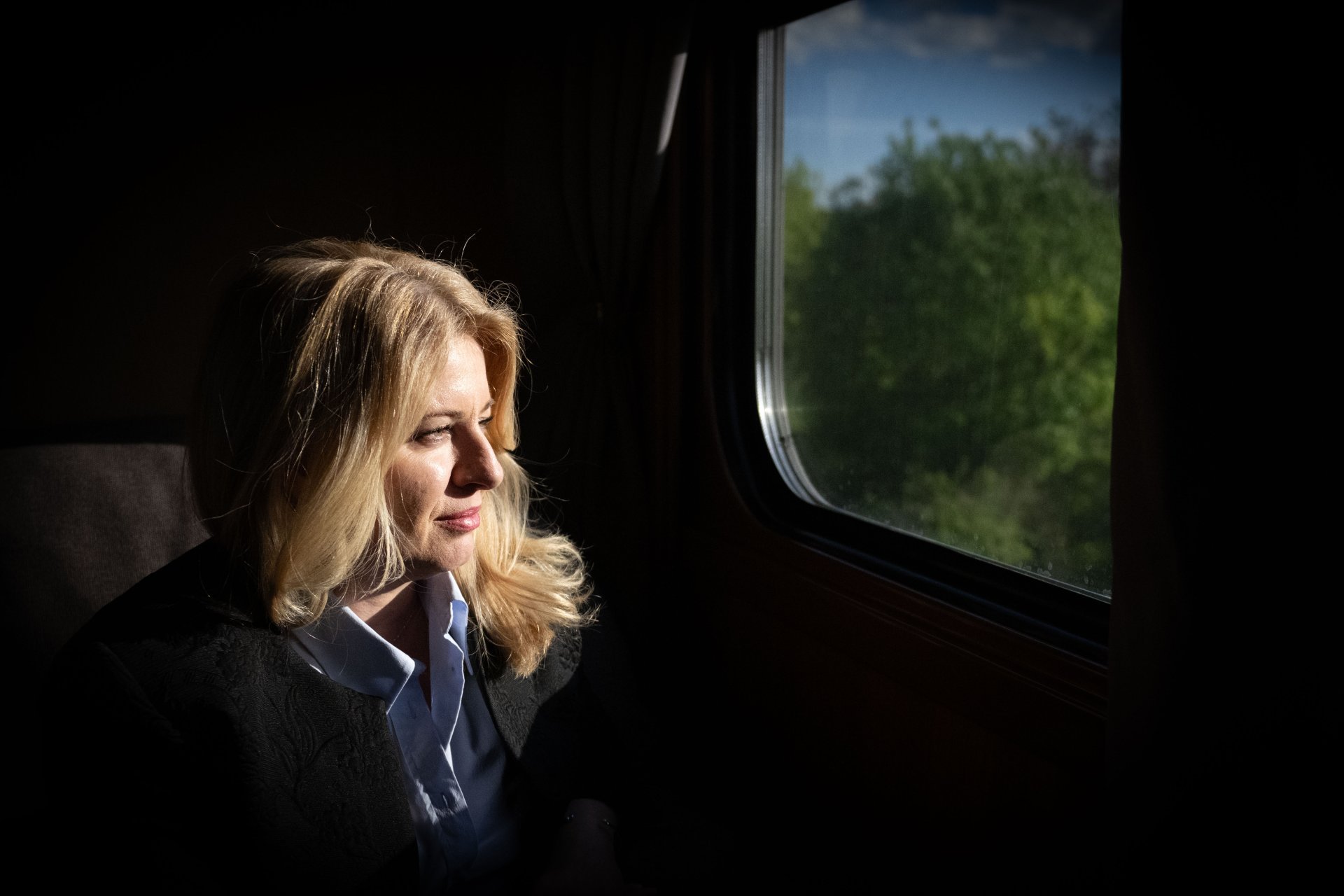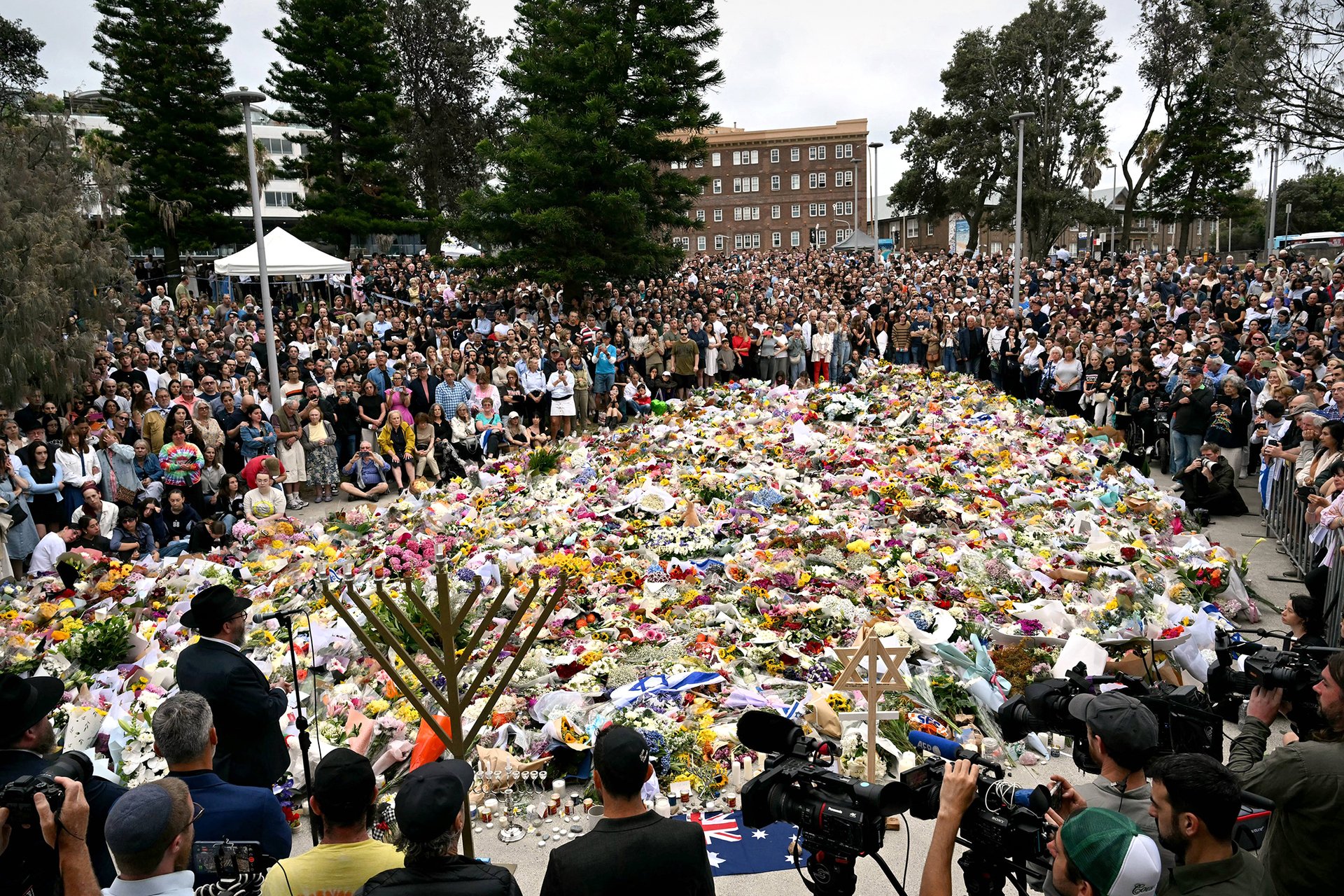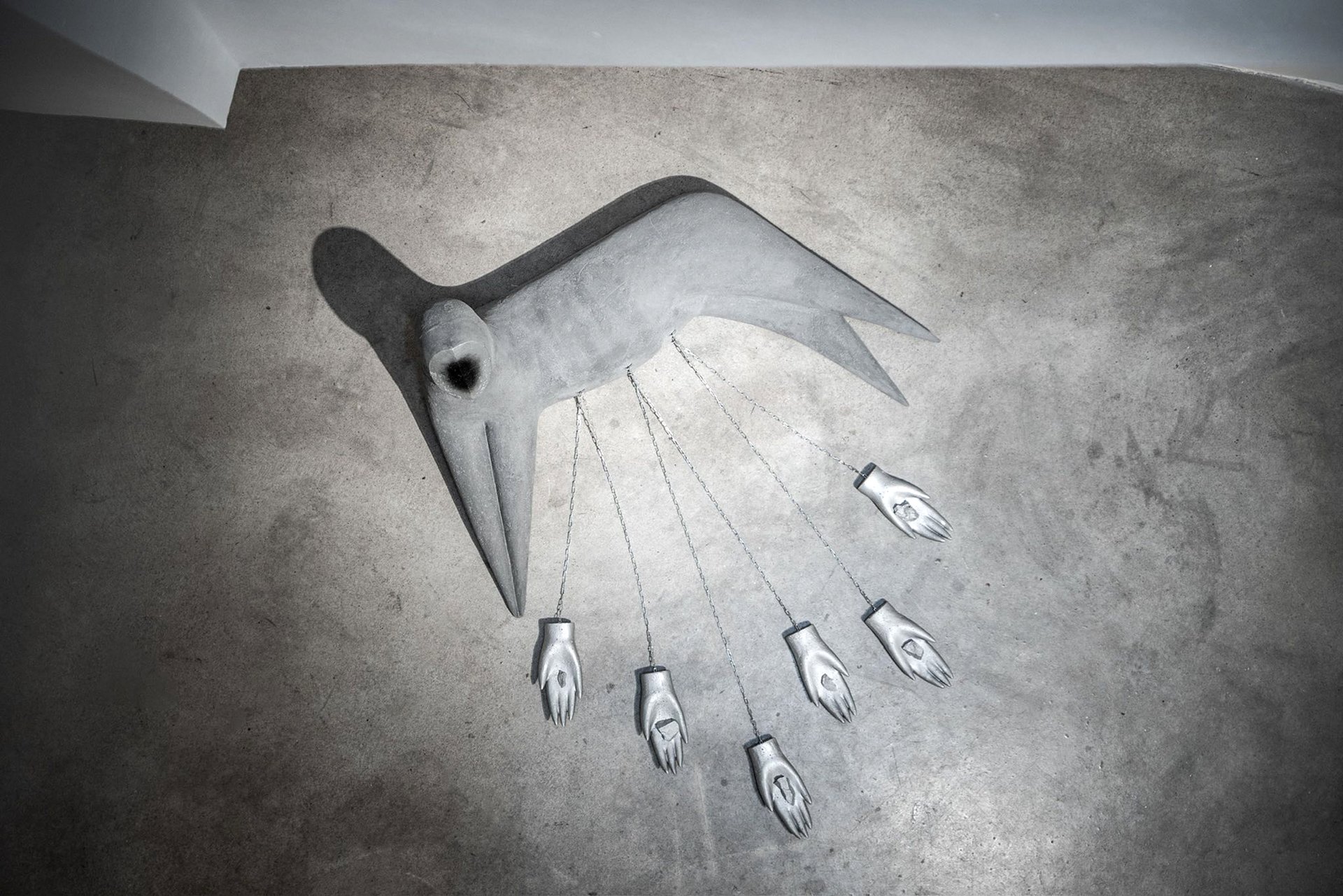I am going against Castro
Never before has the regime of the Cuban communists been as close to its end as it is today. The self-confidence of the opposition has been on a rise and the number of protests on increase; neither the government's demonstration of its own power nor the terror against its adversaries can reverse the trend.

Never before has the regime of the Cuban communists been as close to its end as it is today. The self-confidence of the opposition has been on a rise and the number of protests on increase; neither the government's demonstration of its own power nor the terror against its adversaries can reverse the trend. This is the beginning of the summer on the largest Caribbean island.
Three Days in front of the television
It is the last Wednesday in June and the inhabitants of Cuba are enjoying their third official day off work. The fifth day including the weekend. „Enjoying“ might not be the right expression here. They don't have to work so that they have the opportunity to follow the parliamentary session, which has been dealing with the same agenda for three days now. A week ago, the Cubans decided in a referendum that they wished to retain socialism for ever, and the nomenclature of the immortal dictator Fidel Castro is now ratifying the same in the Parliament. The streets of Cuban towns provide no escape from the fiery speeches of the parliamentary puppets. People, as if hypnotized, are listening to them on radios and televisions, they are flashing from the living room of every other ground-floor apartment, the doors of these being wide open into the street because of the heat. A fifty year old man with thick black hair combed to the back is sitting in his Havanan garden villa, also in front of a TV. Only every now and then does he listen to the odes on the communist regime and to the offences addressed to the suppressed opposition-they are exactly the same as those the Czechs used to hear on TV during the normalization era. He keeps the volume turned off most of the time because the phone rings every five minutes-there have been a few phone-calls from the American embassy, a few from the reporters from CNN and other famous media. Oswald Payá Sardinas finds the parliamentary show quite bitter. It was this informal leader of the Cuban opposition who had triggered the show. Last year, he set into motion an undertaking-in Cuba trodden down by communism an unprecedented one-remotely inspired by the Czech Charter 77. He took advantage of a piece of legislation according to which the government has to call a referendum if it is asked to do so by at least ten thousand citizens who have signed a petition. Together with his friends from the opposition he drew up the so-called Varela Project that calls for the introduction of the fundamental civil rights (freedom of speech, right to enterprise and traveling); in other words it calls for a referendum on the end of bolshevism in Cuba. Ten thousand signatures had been collected by the activists in the spring and now, also owing to the visit of Jimmy Carter, the former US president, who spoke about Varela on the official television, Payá's initiative of civil revolt is enjoying the support o more than twenty thousand adherents. The regime hasn't replied to their demands yet, its only reaction being its own petition calling for the confirmation of the lack of freedom for ever. The dissidents in general believe that Castro will act on the lines of the legislation and will call a referendum on democracy in the end. It is already clear, however, that something unusual is beginning to happen in rigid Cuba. „The regime is afraid of Varela, that's clear,“ says Oswaldo Payá, his eyes set on one of the fiery parliamentarians. „Our people are looking for freedom and they are going to have a chance to express it clearly now.“


Rations of Milk and Gas
Despite the fall of the Soviet communism, the end of the support from the Soviet Union and the ongoing American embargo, the red regime is surviving in its darkest tints on the largest Caribbean island. Even a person familiar with the conditions of real socialism is taken by surprise when he arrives in Cuba. There is pretty much nothing to buy in the gloomy stores with cracked shelves. And nothing means nothing. There is usually only a bag of peas lying on the counter and well-arranged rows of soap on the shelves. Every now and then, at least some food is delivered and the long early morning or late afternoon line-ups make it obvious that the locals are informed. Milk is rationed to families with small children, cheese is available exclusively on the black market. Aside from the conditions in which the general public lives, there is another reality. There are shops and restaurants in the city centers that resemble and provide goods and services comparable to their Western counterparts. However, you can only pay in dollars in these and the prices are higher than in the West. A box of fruit juice costs two and half dollars, pizza lunch five dollars and a night in the cheapest hotel twenty dollars. Ordinary Cubans earn ten, twenty dollars a month. Gas is rationed to people every month. If they need more they have to shop for it on the black market where gas stolen from state-owned cars is available (there is a wide network of distributors who patiently wait for their customers near gas stations), or you have to pay in dollars again.
In cities and between them, people are flocking on foot, bicycles and sometimes even on horses. The most common means of transportation is the body of a truck. Almost everything in Cuba belongs to the state, enterprise is strictly limited and, moreover, highly inconvenient. José Fernandéz had a solid job with the petroleum research institute where he worked as a chemist. He gave up his job at the beginning of the 90s, acquired a business license from the government and started a wine production business in his apartment. His one bedroom apartment in a Havanan tenement situated close to the water front is completely soaked with alcohol vapours. His wide table in the living room is covered with bottles full of new-fermented liquid. „They won't let me open a regular shop so I sell wine from my balcony,“ explains the tiny sixty year old man as he points to a bucket attached to a rope standing in the corner of his balcony. „People ring the bell or call to me from downstairs and I lower the wine to them.“ He sells about four hundred bottles a month, each for 15 -20 pesos, which is about three quarters of a dollar. He also gets a pension from the state but that only comes to about seven dollars. Apart from the fact that he must not open an official shop, he has to deal with other problems. He must not employ anybody (not even his wife is allowed to sell the wine) and he has to buy a certain amount of sugar every month and pay for in dollars-the price being fixed at two dollars a kilo. „On the black market, it is possible to get a kilo bag of sugar for two pesos-that's twenty five times cheaper,“ Mr. Fernandéz complains. He also added his signature to Castro's proposal to retain socialism for ever. „I am not excited about it but I don't want to get into trouble,“ he says. Into what kind of trouble? „I would most likely lose my business license and I don't know what I would live on then.“ It may seem easy to find the answers to such a question. All you have to do is search for people on the Island of freedom who had previously decided to swim against the Castro's stream.
Librad García's Library
It is one o'clock in the morning, the street otherwise soaked in darkness is slightly brightened by few flickering street lamps. In their light, outlines of low one storey houses with wide wooden verandas are coming out. In Camajuaní, a provincial town in the central area of the island, silence prevails; only a shadow of a street dog flits on the dusty road. In one of the local houses lives Librado García (42), the most famous of the local dissidents. It would be possible to call on him at daytime too since he, as well as most other Castro's adversaries, doesn't have a job. However, at night there is a better chance that the European visitors won't arouse the attention of the neighbors who could notify the police. Passing his son sleeping under a mosquito-net, Librado García is leading his unexpected visitors to a small room with a conspicuously low ceiling located at the back of the house. There are an old sewing machine by the wall and several shelves with approximately one thousand books; several banned ones among them, including for example Václav Havel's essey „Power of the Powerless“ („Moc Bezmocných“). Twelve years ago, dissident García worked as a technician in a sugar factory. Then, at the beginning of the 90s, he set up a public library. „Castro had claimed in the public that there were no banned books in Cuba and that the public libraries only didn't have enough money to buy them. So I decided to set up a library and get the books together,“ says García about his original idea. He got the books as presents from friends, foreign visitors and embassies. The last ones he got were books by Fridrich von Hayek, the liberal economist, sent to him by the American ambassador. „Everyone who comes to borrow books is a little afraid. Everybody knows everybody here and everybody knows what the others do,“ he says. „About twenty books are currently checked out and every day there is somebody who wants something. Those who are really afraid want me to bring the books to them. Today, for example, I have arranged few visits with people in the church.“
He doesn't only lend books, he also started to organize literary contests. That is why he is listed among the enemies of the regime and why the local communists fired him from work. „Nobody wants to employ me and I live on a small dole from abroad,“ explains the former technician.
In the last few years, he has assembled few dozens of people who are collecting signatures for the Varela Project at present. „There are twenty thousand people in Camajuaní and we have collected two hundred signatures so far, which I am satisfied with,“ says Librado García. „Now, after Jimmy Carter's visit, we are getting ready for the second round and I am sure we will get some more.“ None of the signatories in the town has been given a hard time by the authorities nor has anyone lost his job. However, things are only at their beginning and everybody is waiting for the regime's response. García himself last experienced difficulties at the beginning of the year when he invited finalists of a literary contest to his place. Before the event could begin, however, García was driven hundreds kilometers away by the police and then released. „Sometimes they also seize some of the books but other than that I have been left alone recently,“ concludes Librado García. „It may be related to the strong international pressure.“
What will happen tomorrow?
Orlando Sabater from Las Tunas, a small town in the east of Cuba, agrees: „So far there has been no indication that the regime would punish those who have signed the petition. I don't know anybody who has been fired or chicaned in any way.“ Sabater, who is seventy years old, spent six years in prison for political reasons and then sold food on the street. Now, he gets 80 pesos pension (three dollars). It is money from his relatives in the USA what helps him survive. „I have been vigorously trying to promote the Varela Project. We are taking the petition from house to house,“ he says about his current occupation. „Somebody turned us in once and the police came and seized the lists of signatures. We collected about one thousand signatures from all sorts of people anyway.“ One of the activists was arrested for collecting signatures and beaten up by the policemen. The current situation in Cuba in many respects resembles the situation in Czechoslovakia in 1988. The regime seems to be strong, it does not allow any political compromises; more and more people, however, drive out their fears in the country with ruined economy. The Cuban dissent came back to life mainly in the second half of the 90s. Dissidents both in Havana and in the countryside have been assembling activists around themselves, some of which work openly, others try to keep their work for the opposition secret. Dozens of independent libraries, underground press agencies, independent groups of doctors or lawyers have been created and all these have been assisting the dissidents. They are organizations more or less tolerated by the regime.
One of the close collaborators of Orlando Sabater from Las Tunas is a plastic surgeon Carlos Finlay. He first met with the dissidents at the beginning of the 90s. He soon started to send information to the exile radio in Miami. „I used a pseudonym at the beginning, then I started doing it openly and I became a member of an independent press agency,“ says Finlay. Soon after he was fired from the hospital and that gave him time to establish Liberta, his own press agency. „There are five of us, four reporters and one analyst. We write about the violation of human rights, social issues, prostitution, drugs. We send our stories abroad on telephone once a week,“ describes Carlos Finlay. „The last story, for example, described the bad conditions in the local home for the elderly.“ Their stories provoke a reaction. „The local newspaper published an article about what all the government does to improve the conditions,“ says Finlay the surgeon.
Apart from being a journalist, he also runs an unofficial surgery in his villa in the garden quarter of the town where he also distributes pharmaceuticals sent to him every now and then from abroad as a help to the dissidents. There is an independent library in the same room, featuring six hundred books, including Orwell's „1984“ and a stack of exile magazines. Considering the severe conditions in Cuba, how come the regime tolerates such literature? „I really don't know,“ says the library keeper, shrugging his shoulders. „The situation is very uncertain here. They may come tomorrow and confiscate it.“ In any case the regime has rasped that the situation is changing. „Ten years ago, there were ten people the most who openly opposed the regime in the town and there are hundreds now,“ says Carlos Finlay.
East European who tries to make sense of the Cuban situation cannot figure out why the government doesn't take measures against the independent journalists. It could do so legally in accordance with the notorious Act 88, which prohibits providing information to other countries or to foreign journalist. Infraction of this law can lead up to twenty years of prison.
„There was a lot of international criticism of this Act so the government froze it. Nobody has been sentenced on the lines of this legislation so far. The boundary between what is allowed and what is not is very fuzzy and the big question is what will happen tomorrow,“ explains Carlos Finlay.
Friends of the Revolution in Camaguey
It is not completely safe to call on the Cuban dissidents but if you adhere to certain rules of caution you can evade the police attention for a long time. As of last year, when Ivan Pilip and Jan Bubeník were arrested in Cuba, the Czechs have to reckon with a thorough customs examination. Later on, however, they can profit from the Cuban attitude towards tourists. Tourism has become the last hope for the deteriorating economy, and the Cuban authorities try not to give the tourists any trouble. Probably no country in the whole world issues entry visas as fast as Cuba. It is not even necessary to fill out an application form and the required document is drawn out in five minutes.
Mass transit doesn't work well in Cuba but foreigners can use the services of the national network of cheap car rentals. A tourist equipped with a special license plate can avoid the usual police checks and their enquiries into the purpose of the trip-something the Cuban drivers have to go through regularly at the boundary of each larger town. If a policeman stops a rental car by mistake, he salutes and apologizes immediately and lets the car continue.
Difficulties occur when it comes to looking for the dissident's address. There is a communist surveillance body called Committee for the Defense of the Revolution (CDR) that has no counterpart in the Czechoslovak communist institutions and that has its offices in every street. Under the slogan „Revolution in our neighbor“ it spies on everybody. Some of its members have their offices in former apartments or in hallways. Every Cuban knows this organization from his own experience because references from the Committee accompany him throughout his life.
Omar Fernandéz-a former teacher of physics at the university in Camaguey, a three hundred thousand metropolis in central Cuba-also knows this organization well. He was fired seven years ago when he had complained about the destitute condition of a university teacher who earns only fifteen dollars a months. He decided to apply for a position of a computer expert but he soon found out that there was no job for him on the island. „The references of the Committee for the Defense of the Revolution were negative and that proved to be critical in the case of all the potential employers,“ says Omar. „They kept telling me that I wasn't a suitable candidate.“ The former professor, however, did not find these answers satisfactory and he asked for an explanation. „I got a letter which said that I was a good worker but I wasn't sufficiently involved in the community.“ What it means is that he is the only person in his street that does not attend the meetings of the defenders of the revolution. Looking at the relationships in his neighborhood, Mr. Fernandéz's situation is rather unusual. The CDR has its headquarters in the opposite house and he knows its members as his neighbors. „We have known each other for ten years. I don't consider them to be my enemies but we don't talk to each other. And why don't I go and ask them why they gave negative references about me? There is no point. All the members of the Committee decide about the references and that is the whole street,“ explains the physicist.
Presents from his relatives abroad make up for the loss of his salary. Sometimes, he illegally films celebrations of his friends with his own camera. Following his experience with the defenders of freedom, he belongs to the most active dissidents in the city. He is one of the few who have a computer at home. He uses it for printing out a two two-page spread magazine he launched earlier this year. He informs about the violation of human rights in the city and its neighborhoods and recently he issued 500 copies of the full version of the Varela Project. „So far, we have distributed the magazine only to friends. But we applied for an official license last month and we are waiting for the regime's response now,“ says Omar. This was an extraordinary step to take even in today's Cuba. There are no illegally published newspapers like for example Lidové noviny or Sport in Cuba. Illegal publications are severe punished and the Cuban dissidents have been afraid of these so far. „We are afraid, it is true, but we had to try,“ adds Omar Fernandéz.
I would look into their eyes
The „good citizens'“ pressure in not perceivable only through the committees for the defense of the revolution in Cuba. Meetings in front of the enemy's house or at his work have had a tradition too. According to the Cubans themselves, the regime used to use such terrorizing practices but they are quite exceptional today. The last major demonstration took place in front of Leonard Bruson's house last winter. This activist had urged others to take part in street demonstrations. A crowd gathered in front of Bruson's house and it demanded his arrest. It happened few days later and he has been in prison ever since.
Omar Saludez, a journalist and dissident from Havana, also experienced his neighbors protesting in front of his house. „Not all the people from the street strike in today; it is far from that,“ says Omar. „Somebody uses his work as an excuse, others simply stays at home. But many neighbors did come. They were standing in front of my house and shouted that I was the enemy of the revolution. Today, we show each other the cold shoulder. We don't speak and neither do we say hello to each other,“ says the thirty-six years old father of two small children.
The regime cannot rely on the fear of the public any more and it employs the so-called rapid deployment brigades," says fifty years old Ricardo Rodríguez, who is also from Havana. „These are communists who are transferred from one place to where they are needed and they demonstrate the exasperation of the masses.“ Mass demonstrations were at the beginning of Ricard's dissident career. He worked as an electrical engineer in the nuclear research center till the 80s. He lost his job when he refused to participate in a meeting organized in order to denounce his colleagues who had emigrated. Later, he worked as a worker in a factory from which he was sacked at the beginning of the 90s when he founded the Liberal Democratic Party of Cuba. „Then I realized that I will have more opportunities to say something as a journalist and I started working for an independent agency,“ recollects Ricardo Rodríguez. Recently, he has been interviewing participants of the anti-Castro opposition of the 60s, writing about contaminated seawaters, the quality of potable water in Cuba and about waste management in tourist resorts. „All people living in this street know what I have been doing; it is impossible to keep something back from them,“ says Ricardo. „But I haven't got any troubles so far. Some people even come to me to tell me that I am brave.“
The Havanan dissident cannot foreclose a demonstration in front of his house. „One third of people would not show up but there is a group of people who would be capable of lynching me as in the old times. And most people would come because they would be afraid of the regime,“ contemplates Ricardo. Then he adds, smiling: „And I would go outside and look into their eyes.“
Roco, Rivero, Payá There is a lot of bustle on the one storey villa veranda located in a nice Havanan district. Vladimir Roca, the owner of the house and the leading Cuban dissident, was released from prison, having served a six year sentence, two months ago, and he is getting used to normal life again. A few colleague dissidents come to his place to chat and to make phone-calls every day. Their discussion circles around a single topic-the success or failure of the Varela Project. „I haven't had any problems with the police since I was released,“ he says when a couple of policemen pass by the veranda. „The government concentrates on the economic issues and leaves the dissidents alone.“ When Roca was arrested, there was no internet on the island. In most cases, ordinary Cubans still don't have access to it; the few exceptions are, besides universities and chief government offices, homes of the leading dissidents. „Normally, it is impossible to get anything in Cuba. But if a company buys something and you know somebody there, you can buy it through this person,“ explains Roca, sitting over a textbook for the internet users.
Raúl Rivero, probably the best-known Cuban anti-regime journalist, has less reasons to be satisfied on the semifinal Wednesday in June. He has repeatedly applied for a permit to travel to Spain where he was supposed to attend a meeting of writers. One again, he did not succeed. „It is my right and I will apply again and again,“ he says with a frown on his face. The former Cuban correspondent in Moscow and North Korea is running an important news agency that employs fifteen journalists, two of which are women. He most often supplies news to Rádio Martí in Miami. Raúl Rivero has an e-mail access, as well as many other dissidents, because he is illegally hooked up to the university cables. His apartment in one of the old Havanan tenements is monitored because one of the neighbors readily volunteered to take over from the police. Rivero's group is going to launch a monthly in the near future. „It is dangerous but we have decided,“ he announces from his rocking chair.
The only dissident under a permanent police surveillance today is the leader of the opposition Oswaldo Payá. Paradoxically, he is one of the few dissidents who still have a job-he repairs medical appliances in a hospital. The Christian Democrat is a father of three adolescent children and he spent several years in a works service camp. He came up with the Varela Project already in 1997 but it was only this year when he gained stronger support from the ordinary Cubans. Václav Havel and fifty Mexican senators have nominated him as a candidate for the Nobel Prize in Peace for the next year. He wants to hear about the opinions of the Czechs about Cuba and he wonders why so many people voted for the communist party in the last election.
It is an opportunity for those who are looking for freedom,
says Oswaldo Payá about the Varela ProjectIs it good that tourists travel to Cuba?
First I thought that it was good. I though that we would at least keep in touch with other countries. But now I see that Cuba doesn't benefit from it. Foreigners have more rights in Cuba than the Cubans themselves. And the money tourism brings helps to consolidate the principles of the regime. Were you surprised by the success of the Varela Project?
The major success is that every Cuban who is looking for freedom has an opportunity to take the first step. He can demonstrate that he is not afraid of the regime. Having signed the petition, each Cuban begins to play an important role in the Cuban society. What if the government won't call the desired referendum?
It wouldn't be a failure of the opposition but of the regime itself. They would only prove that they don't respect their own laws. Why did so many people vote in the official „anti-socialist“ referendum?
I don't see the high turnout as expected or unexpected. The regime is still using its old methods, the people are afraid. The referendum only proves that the government is afraid of the opposition. The referendum, however, is not the big happening. The big happening is the Varela Project, despite the fact that it is not the aim but only the means to the democratic reforms. How are you anyways?
From the citizen's point of view, I have a family and it is, of course, difficult for them. The house is monitored all the time, the policemen sleep in the park across the street. There are also threats now. The current success, however, is a great motivation for us to go on. Should the opposition negotiate with the Castro's regime?
This question is ungrounded because they are not able to negotiate with us. We are ready. Is there anything about Fidel Castro history will once appreciate?
This depends only on him. There is something positive and something negative about each person and I don't think that Castro is a devil. He does certain things with love. His major flaw is that he considers power to be the most important thing in life.
Hundred plus one According to Ricard Gonzáles, the leader of the organization for the support of Cuban journalists, there are about one hundred independent journalists working for twenty linked agencies. They don't publish-or at least they didn't until recently-any magazines, they don't have a radio they could use. They send all their stories to Cuban media in the USA, optionally to other Latin American countries, on the phone. Presently, a journalist who said on the radio that Castro is a liar is serving his sentence in prison. There are about three hundreds political prisoners in total in Cuba, their most common offences being defamation of the state representative or for example an attempt to escape from the country on a watercraft.
The article was written with the support of the Freedom House Foundation.
Pokud jste v článku našli chybu, napište nám prosím na [email protected].

